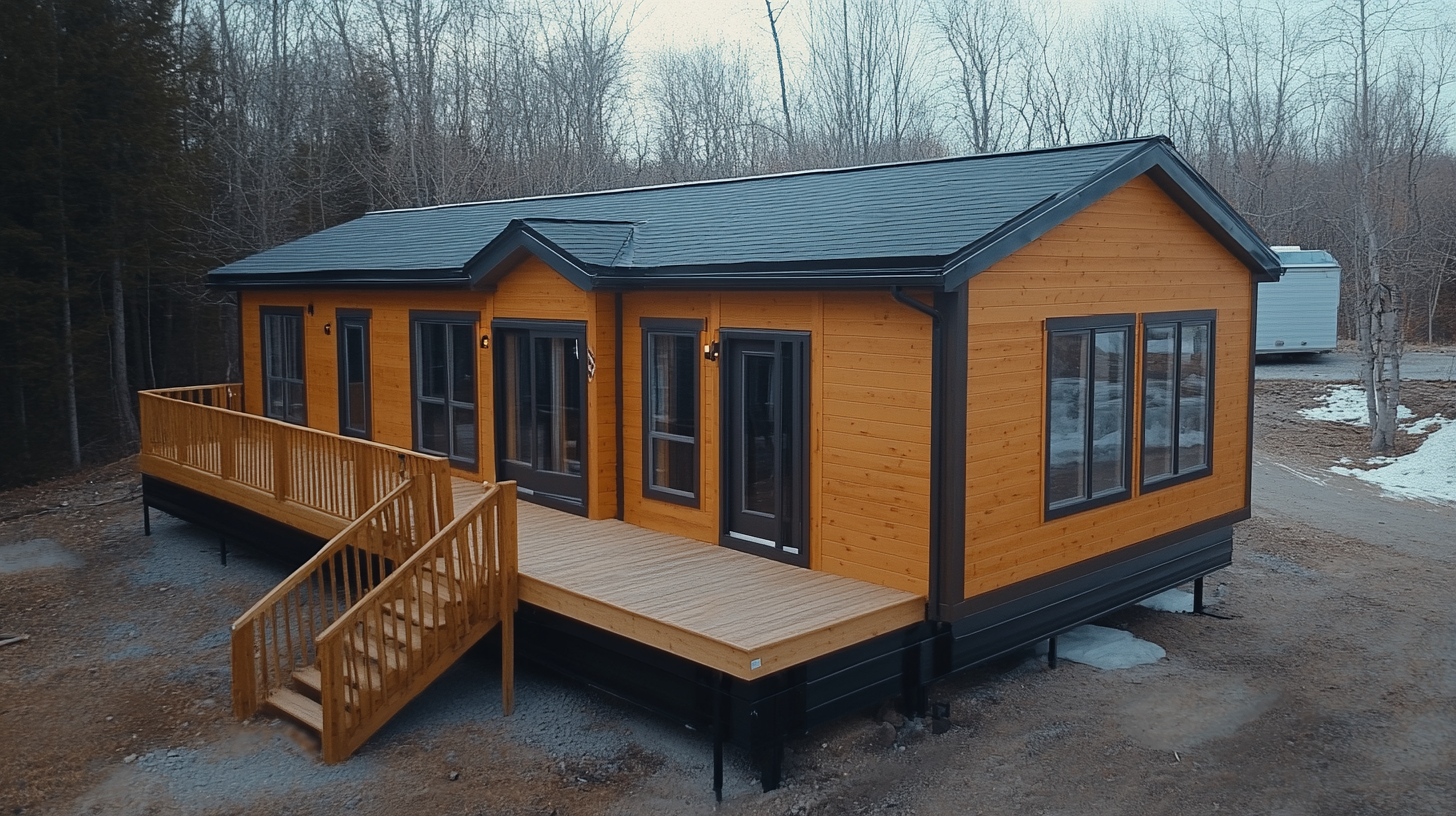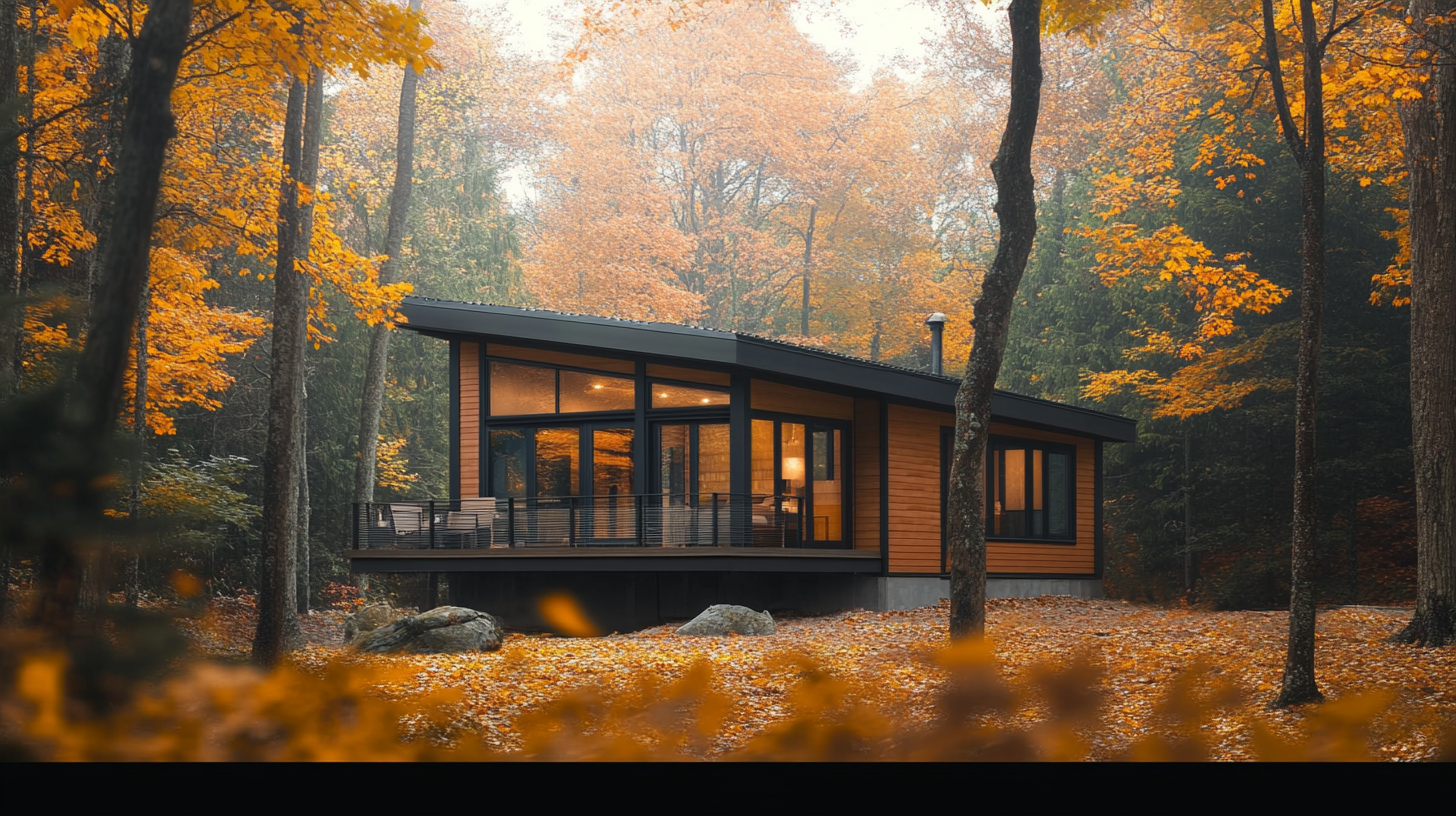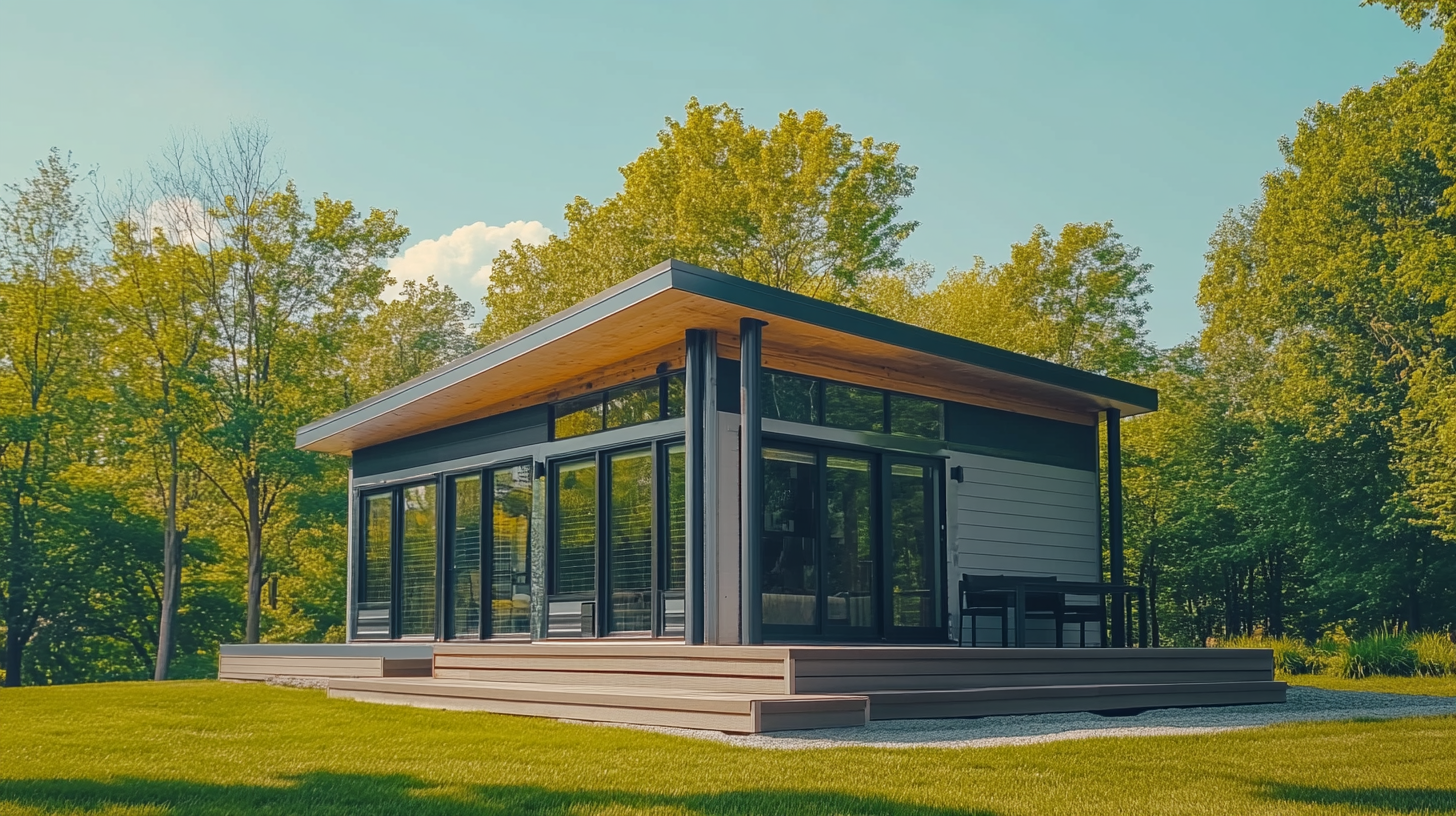As the demand for sustainable and efficient housing solutions continues to rise, Cabin Modular Homes have emerged as a compelling choice for both builders and homeowners alike. According to a recent report by the Modular Building Institute, the modular construction industry has seen a growth rate of 15% annually, highlighting the increasing acceptance of this innovative building method. Cabin Modular Homes not only offer the benefits of rapid construction and reduced material waste but also provide homeowners with customizable designs that can be tailored to fit their unique lifestyles and preferences. Additionally, a study by the National Association of Home Builders shows that 62% of homebuyers prioritize energy efficiency, a characteristic inherent in many modular designs due to their advanced construction techniques. With these remarkable advantages, it's no wonder that more people are turning to Cabin Modular Homes for their next project.

The emergence of cabin modular homes is heralding a new era in home construction, characterized by efficiency, sustainability, and innovation. As modular construction techniques continue to evolve, they offer a viable solution to today's housing challenges. According to recent industry reports, modular homes can be built up to 50% faster than traditional homes, significantly reducing labor costs and time spent on-site. This methodology involves prefabricating sections of a building in a controlled factory environment, ensuring quality and uniformity while minimizing waste—a crucial factor in addressing the growing concerns about sustainability in construction.
Moreover, the rise of 3D printing technology is further enhancing the modular home sector. The use of advanced materials such as nanocellulose not only strengthens structures but also promotes eco-friendly practices. Research indicates that 3D-printed materials can reduce carbon footprints by up to 70% compared to conventional building materials. The combination of these innovations positions cabin modular homes at the forefront of a revolution in construction, ultimately allowing for taller, more intricate designs while maintaining affordability and sustainability. As the industry transitions toward these modern solutions, the potential for cabin modular homes to reshape our living spaces becomes ever clearer.
| Benefit | Description |
|---|---|
| Cost-Effective | Modular homes can be more affordable than traditional homes due to reduced labor costs and shorter construction time. |
| Speed of Construction | Cabin modular homes are built in factories, which significantly speeds up the construction process. |
| Sustainability | Many modular homes are built with sustainable materials and energy-efficient appliances, minimizing environmental impact. |
| Customization Options | Homebuyers can choose designs, layouts, and finishes to create a space that meets their preferences. |
| Quality Control | Factory construction provides better quality assurance as the building is constructed in a controlled environment. |
| Less Waste | The modular construction process generates less waste compared to traditional building methods. |
| Mobility | Cabin modular homes can often be relocated if necessary, providing flexibility in living arrangements. |
Cabin modular homes present an innovative and sustainable approach to modern living, aligning perfectly with the growing demand for eco-friendly housing solutions. One of the standout benefits of these homes is their energy efficiency, which can significantly reduce utility costs for homeowners. Studies indicate that modular homes can achieve up to 30% lower energy consumption compared to traditional site-built homes, making them an appealing option for environmentally conscious buyers.
Moreover, the construction process of cabin modular homes generates substantially less material waste—approximately 10-15% less—compared to conventional building methods. This efficiency not only promotes sustainability but also contributes to lower carbon emissions throughout the lifecycle of the home. As the housing market grapples with affordability issues, especially in light of recent trends towards higher construction costs, modular homes remain a competitive solution.
With the tiny house movement gaining momentum, these compact, eco-friendly homes are being recognized for their minimal environmental impact. Not only do they utilize fewer resources, but they also support a lifestyle that prioritizes simplicity and sustainability, resonating with a growing demographic that values a smaller carbon footprint. As more individuals seek to live in harmony with the planet, cabin modular homes stand out as a viable choice for the future of housing.
This pie chart illustrates the distribution of the incredible benefits of choosing Cabin Modular Homes. Each segment represents a unique advantage, showcasing how these homes promote eco-friendly living while offering various practical benefits.
When considering a new home, time efficiency can be one of the most crucial factors to take into account. One of the most significant advantages of opting for cabin modular homes is their ability to expedite the building process without sacrificing quality. Unlike traditional homes, which may face delays due to weather conditions or lengthy permit processes, modular designs streamline construction time. Fabricated in a controlled environment, these homes can be built concurrently with site preparation, resulting in a considerably reduced overall timeline.
Moreover, the precision of modular construction minimizes the chances of errors and rework that often arise in conventional building methods. With components prefabricated in a factory setting, builders can ensure tighter tolerances and higher-quality materials. This not only speeds up installation but also enhances the longevity of the structure. As a result, homeowners can move into their dream cabin sooner, all while enjoying a well-constructed home that meets their expectations and needs. With the growing popularity of modular designs, it’s clear that time efficiency is a game-changer in modern home construction.
The following chart illustrates the time savings achieved by choosing cabin modular homes compared to traditional building methods across various stages of construction.
Choosing cabin modular homes for your next project can be a financially savvy decision that offers a range of cost-effective benefits. One of the primary advantages of modular homes is their potential for significant savings. Unlike traditional constructions, which often have unpredictable costs due to labor and material price fluctuations, modular homes are built in a controlled factory setting where efficiency is maximized. This process leads to lower expenses related to construction timelines and labor, ultimately resulting in more predictable budgeting for homebuyers.
Moreover, modular homes are increasingly recognized for their energy efficiency and sustainability. With a focus on reducing material waste and carbon emissions, these homes align with the growing demand for environmentally friendly housing options. As they become a more popular choice in various regions, including rural areas, they may play an essential role in addressing housing shortages. The financial aspects of ownership—such as lower utility bills and reduced maintenance costs—further enhance the appeal for families and individuals looking to manage their finances intelligently while investing in their home.

When considering building a cabin modular home, one of the standout advantages lies in the flexibility and customization options available. Unlike traditional construction methods, modular homes offer a unique ability to tailor every aspect of your cabin to fit your specific needs and preferences. Whether you envision an open floor plan with expansive windows to capture the beauty of your surroundings, or cozy nooks designed for relaxation, the modular approach allows for quick adaptations of designs without compromising on quality or durability.
Furthermore, the customization extends beyond mere aesthetics. Potential homeowners can choose energy-efficient materials, smart home technologies, and sustainable practices that align with their values. This tailor-made approach makes it easier to create a space that not only reflects personal style but also enhances functionality. From the choice of layout to the selection of eco-friendly features, embracing modular construction means creating a cabin that truly feels like home, uniquely fitted to accommodate lifestyle and aspirations.

